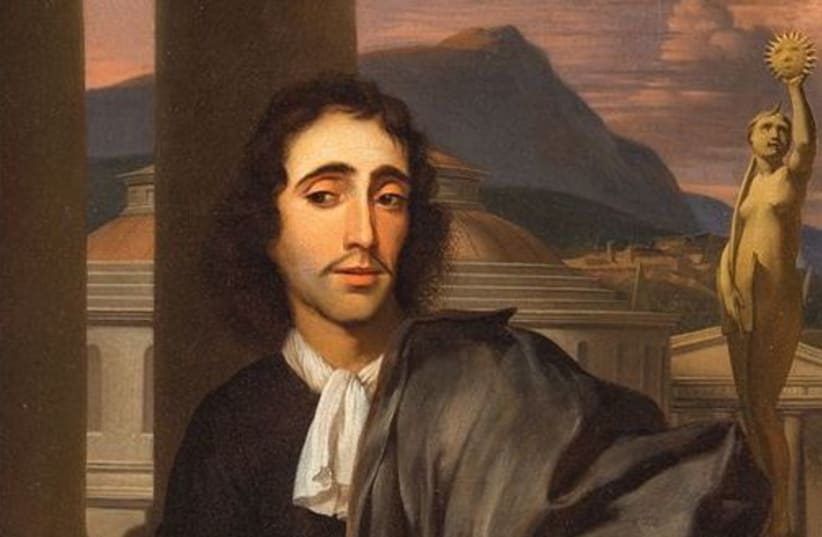Baruch Spinoza (1632-1677) was born in Amsterdam and lived in the Dutch Republic, where he worked as a lens grinder. In 1655-56, He was expelled from the Jewish religious community, but his love of philosophy brought him a small but dedicated circle of supporters.
In his book Ethics, (1665) Spinoza was one of the first thinkers to argue that the Universe comes not from an anthropomorphic super-person, nor from a supremely intelligent “Mind,” but from something that is abstract and impersonal.
Spinoza re-defined “God” as a singular self-subsistent “Natura” (Nature) or “Substantia” (Substance). Spinoza wrote that Natura is absolutely infinite, self-caused, and eternal; and it causes the infinite number of forms and attributes that we see around us. He regarded both physical matter and thought as derivative forms of Natura.
Spinoza wrote that “God is the sum of the natural and physical laws of the universe and certainly not an individual entity of creator.” I agree. But rather than describing God or Nature as a basic “substance,” I think it is the set of Interrelated Creative Processes that work onand with substances by channeling energy into and through creative steps. These Processes include Emergence, Evolution, Innovation, Complexity, and many more.
Naturalism is not so much a coherent philosophical system as a point of view common to a number of philosophical and religious systems. This point of view looks upon Nature as the one original and fundamental source of all that exists, and in attempts to explain everything in terms of Nature. Theists challenge the idea that Nature contains all of reality; however, some theists hold that natural laws may be viewed as secondary causes employed by God or by Gods. Pantheists believe that Nature is identical with divinity (but usually do not recognizing a personal, personified, anthropomorphic God). In the Far East, Naturalism was the foundation of two out of six orthodox schools and one heterodox school of Hinduism.
In philosophy, Naturalism is the idea that only natural laws and forces (as opposed to supernatural ones) operate in the universe. “Ontological Naturalism” connects to Ontology, the philosophical study of what exists. Philosophers often treat naturalism as equivalent to materialism. Western metaphysical naturalism originated in ancient Greek philosophy. The early pre-Socratic philosophers, because they investigated natural causes, often excluding any role for gods in the creation or operation of the world. This eventually led to fully developed systems such as Epicureanism, which sought to explain everything that exists as the result of atoms falling and swirling in a void.
(Note: main source is from, and links are to, Wikipedia.)
— J.X. Mason

